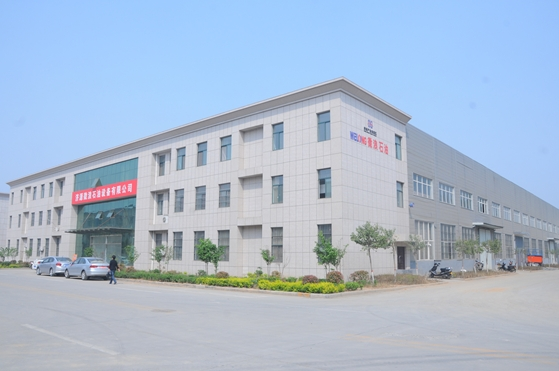Enhancing Well Productivity and Efficiency
Streamlining Debris Removal
The taper mill excels in its primary function of removing debris and obstructions from wellbores. Its conical design allows for a gradual engagement with the targeted material, reducing the risk of getting stuck or damaging the wellbore. This streamlined approach to debris removal significantly enhances operational efficiency, allowing for quicker completion of maintenance tasks and reducing overall downtime.
Improving Flow Rates
Taper mills play a vital role in enhancing flow rates within the wellbore by creating a smooth, tapered surface. This improvement is essential for optimizing production output and ensuring the efficient transport of oil and gas to the surface. The gradual taper formed by the mill helps to minimize turbulence and friction, which can otherwise hinder the flow of fluids. By reducing these factors, taper mills enable a more consistent and steady flow, allowing for higher volume production and better overall performance in drilling operations. This results in more efficient resource extraction, contributing to increased profitability and reduced operational costs.
Facilitating Subsequent Operations
The work done by a taper mill sets the stage for successful completion of other downhole operations. The clean, tapered surface it creates provides an ideal foundation for activities such as setting plugs, running casing, or performing well logging. This preparation can significantly reduce the time and resources required for these follow-up tasks, contributing to overall operational efficiency.
Cost-Effective Maintenance Solutions
Reducing Tool Inventory
The versatility of the taper mill allows it to perform tasks that might otherwise require multiple specialized tools. This consolidation of functionality helps to reduce the inventory of downhole tools that drilling contractors and operators need to maintain. By minimizing the number of tools required, companies can achieve significant cost savings in terms of both initial investment and ongoing maintenance.
Minimizing Operational Downtime
In the oil and gas industry, time is a critical factor, and the efficiency of taper mills plays a significant role in minimizing operational downtime. The ability of taper mills to swiftly and effectively clear obstructions and prepare the wellbore for subsequent operations ensures that fewer resources are spent on maintenance and more are allocated toward active production. This streamlined process reduces delays and increases the time available for extracting valuable resources. As a result, enhanced efficiency and reduced downtime directly contribute to higher productivity, leading to a positive impact on a company’s profitability and overall operational success.
Extending Well Lifespan
Regular maintenance using taper mills can significantly extend the productive lifespan of a well. By effectively removing scale, cement, and other debris that can accumulate over time, these tools help maintain optimal flow conditions and prevent the premature abandonment of wells due to reduced productivity. This longevity translates into improved return on investment for drilling operations.
Adaptability and Durability in Challenging Environments
Versatility Across Well Conditions
Taper mills are engineered to perform reliably under a wide variety of well conditions, making them versatile tools in the drilling industry. Whether working in vertical, deviated, or horizontal wells, these tools can be customized to suit the specific needs of each operation. Their adaptability ensures they can tackle challenges presented by diverse drilling environments, ranging from onshore to offshore projects. Additionally, taper mills are effective in wells with varying depths, geological formations, and compositions, providing consistent results. This versatility allows them to be a valuable asset for operators, improving efficiency and ensuring successful drilling operations in a range of complex scenarios.
Resilience to Harsh Downhole Conditions
The demanding nature of downhole environments requires tools that can withstand extreme pressures, temperatures, and corrosive substances. Taper mills are engineered with durability in mind, often featuring hardened materials and robust construction that can endure these challenging conditions. This resilience not only ensures reliable performance but also contributes to the tool's longevity, providing better value for the investment.
Customization Options
To further enhance their adaptability, taper mills can be customized to meet specific operational needs. This may include variations in size, cutting surface design, or material composition to optimize performance for particular well characteristics or types of obstructions. The ability to tailor these tools to specific requirements allows for more precise and effective maintenance operations, ultimately contributing to improved well productivity and efficiency.
In conclusion, the benefits of taper mills in oilfield operations are numerous and significant. From enhancing well productivity and efficiency to providing cost-effective maintenance solutions and demonstrating remarkable adaptability in challenging environments, these tools prove their worth time and time again. For drilling contractors, engineers, and decision-makers in the oil and gas industry, investing in high-quality taper mills is a strategic choice that can lead to improved operational outcomes and long-term cost savings. If you're looking to optimize your well maintenance operations or have questions about incorporating taper mills into your toolkit, don't hesitate to reach out to industry experts. For more information on taper mills and other oilfield products, contact us at oiltools15@welongpost.com.

